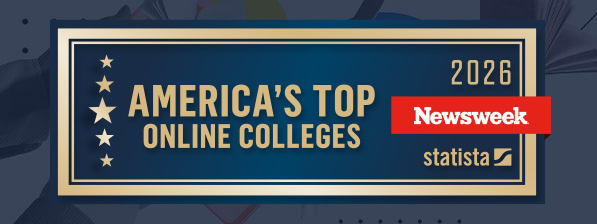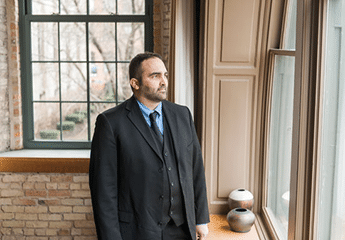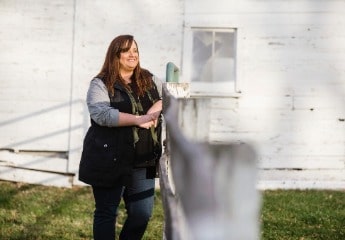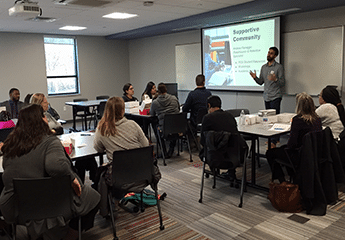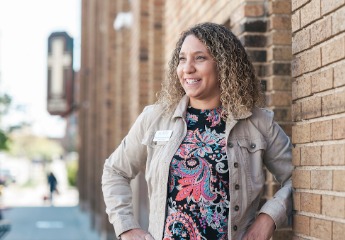As active participants in our communities, we can serve in many ways. From volunteering at a local food pantry to mentoring kids after school to offering an encouraging word to a coworker to donating blood and so much more, the opportunities to meet the needs of others are all around.
To fuel this passion for serving others, practical knowledge, skills and experiences can set you up for effective participation and leadership. Such as through an associate program in human services.
Of course, a degree is not a prerequisite for being involved in your community. Anyone can serve at any time. But what this practical experience in a degree program offers is the opportunity to enhance your understanding of how to be most effective in meeting the needs of others, to grow in self-confidence, to develop soft skills for future success and so much more.
With so many fields and degree options, how are you to know if pursuing human services is the right path for you? Here we share five important things you should know if an associate of science in human services can help you achieve your goals.
1. Help Others Journey Through Similar Experiences
Especially when it comes to the human services field, perhaps you are passionate about meeting a need you see in the community and empowering others to thrive. While this need fulfillment can just be witnessed in the community, most often you are driven by a social situation you’ve experienced for yourself.
Perhaps you had a tutor in elementary school and now you want to do something to help those programs be effective. Maybe you know someone who has needed the services at a pregnancy resource center and now you want to be part of bringing that encouragement to others.
Your experiences and journey thus far can be an inspiration and motivation for others who may be in the same situation. Whether you’ve faced a difficult journey yourself and want to help others facing the same struggles or have witnessed a need you’re passionate about addressing, the foundational experiences gained in a human services program can give you the tools to empower others to thrive.
Is It for Me? Ask Yourself These Questions
- Is there a need in the human services feel I desire to meet?
- Have I experienced or witnessed a social problem that I crave to see addressed?
- Am I willing to use my experiences and journey to empower and encourage others?
2. Be Equipped to Take Your Next Step
There are a lot of career opportunities and vocational directions available with an associate degree in human services. The practical knowledge you gain in an associate degree program allows you to move along your path to reaching your career goals. Continuing on in your education allows you to build upon this foundation and be better equipped in understanding and meeting the needs of others.
For example, with CU Online, you can easily transition from an associate program into a bachelor’s program. With the foundation of human services, a bachelor’s in psychology or ministry leadership can be a great next step for you in serving the community.
While to reach career goals such as a counselor or therapist, you’ll need to continue on your educational journey, an associate in human services provides that necessary foundation to build upon as you grow in knowledge and experience.
Is It for Me? Ask Yourself These Questions
- Am I interested in continuing my education after developing a solid foundation gained in an associate program?
- Am I willing to continue on in my educational journey to reach career goals such as therapist or counselor?
- Do I believe that being better equipped to serve can make me more effective at meeting the needs of those around me?
3. Enhance Your Essential Transferable Skills
In a degree program, you not only learn practical content you can apply to your desired field but also enhance your transferable skills, or soft skills, that are applicable to any situation in which you may find yourself.
An associate program builds upon that foundation you’ve gained through your high school education or in earning a GED to take you to your next level of being equipped for your work.
Transferable skills are so valuable because they are just that, transferable. If you’re starting out in retail and move to nonprofit management, these soft skills you gain are important and help you thrive in both arenas.
These skills are varied and often fall into different categories such as people skills, technical skills, communication skills and more. Think of things like writing, public speaking, budgeting, listening, conflict resolution, note-taking, comprehensive reading, just to name a few.
In an associate program, you’ll have the opportunity to establish and grow in these transferable skills to use wherever life takes you. Boost your self-confidence as you give presentations to a supportive, encouraging class so you’ll be good to go when presenting to a panel for your nonprofit. Enhance your reading comprehension with course assignments to complete review tasks in your organization’s work. Deepen your communication skills through discussions in your class that you can apply when mentoring your clients at work.
Through practical course work, an associate in human services is designed to empower you to thrive holistically.
Is It for Me? Ask Yourself These Questions
- Am I interested in deepening my transferable skills to apply to my desired field?
- Do I desire to develop effective communication skills to apply to conversations with clients, staff and others?
- Do I seek to apply my transferable skills to the human services field?
4. Establish a Foundation of Practical Content Knowledge
Associate programs are designed to provide a solid foundation for you to enhance transferable skills as well as gain understanding in a particular field. In the human services associate program, course work focuses on the prevention and remediation of human services problems and equipping you to address those situations as an effective leader.
And this practical knowledge, skills and experience build a foundation for your everyday work and home life. This world is complex. This experience empowers you to discover, develop and pursue solutions in addressing that complexity.
Enhance your content knowledge and understanding of human services in foundational courses such as introduction to sociology and introduction to human services. Grow in effective management in a leadership studies course.
Is It for Me? Ask Yourself These Questions
- Am I interested in gaining practical knowledge about current human services needs?
- Am I confident I can use the foundation I gain through this program to apply and enhance my current or aspired work?
- Do course topics in human services motivate and inspire me?
5. Serve in a Variety of Human Services Fields
Scroll through your News Feed, news app or turn on the TV and you’re bound to recognize a human services need. From addressing social issues to leading in a ministry setting or helping others solve problems, having experience in the human services field is valuable.
In fact, according to the Bureau of Labor Statistics, the field of human services is growing. For example, social and human services assistant jobs are expected to grow 16% from 2016-2026, which is a much higher rate than the average job growth rate. Much of this growth is due to the rise in elderly population and the demand for social services.
So what career opportunities does an associate degree in human services lead to?
With such a practical and diverse degree program, you can explore entry-level careers in ministry settings, nonprofit operations, customer service and many more people-focused roles.
Whether you aspire toward a specific human services field or are eager to develop a solid, transferable foundation, an associate in human services can set you up to serve well.
Is It for Me? Ask Yourself These Questions
- Does a career field in human services interest me?
- Am I interested in a people-focused career that allows me to work with and serve others?
- Do I aspire to continue to grow in my education in achieving my goals in career fields of counseling, social work and others that require additional training?
Discover an Associate in Human Services Program Designed for You
How will you be better equipped in pursuing your passion of serving others? With the practical knowledge, skills and experience gained through an associate degree in human services, you can grow in effectiveness in meeting the needs of your community. And in a degree program with CU Online, you can establish that valuable foundation in a convenient format that’s designed for the busy working adult.




